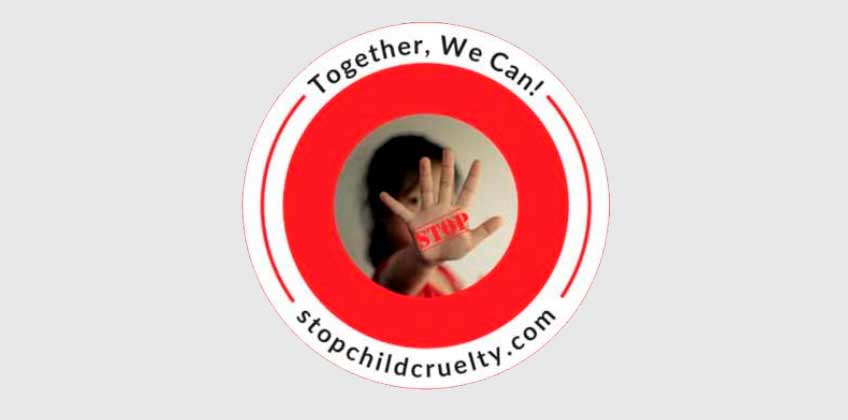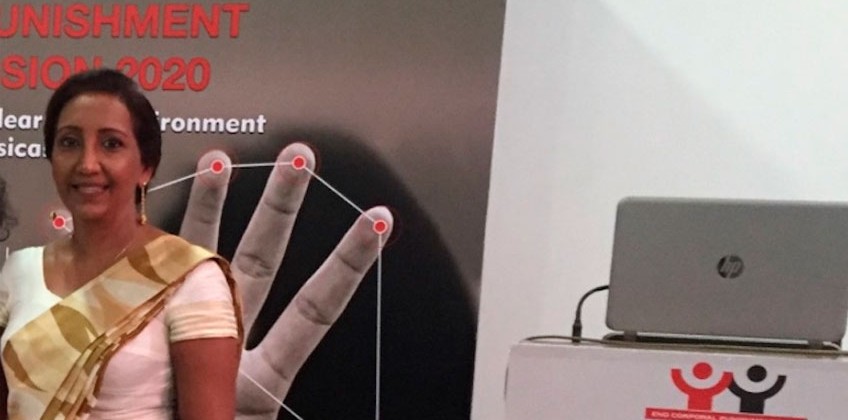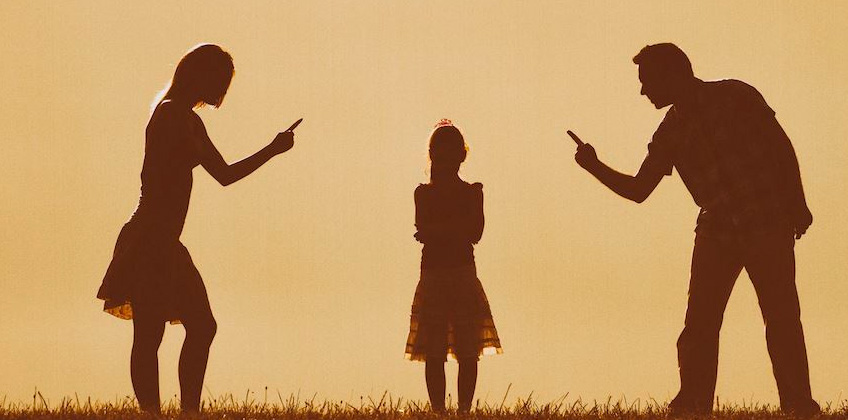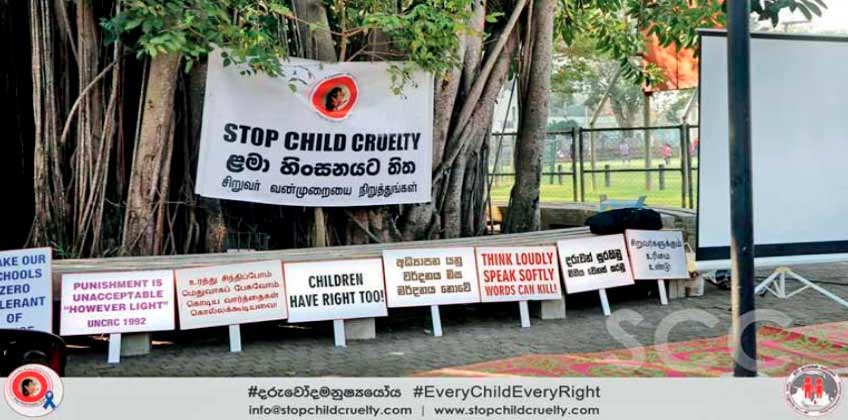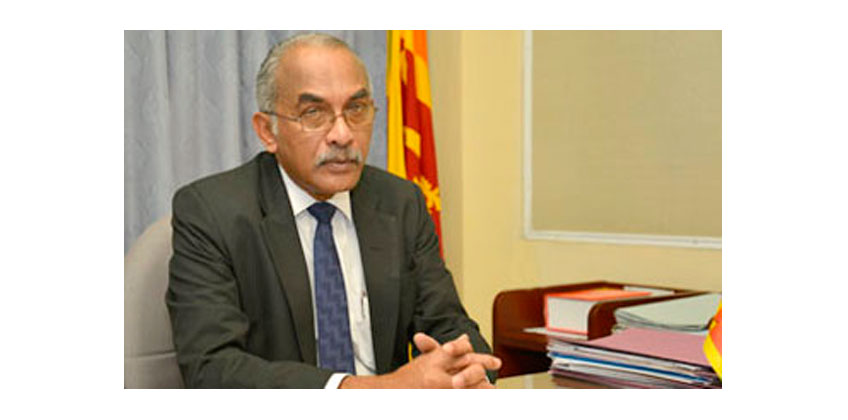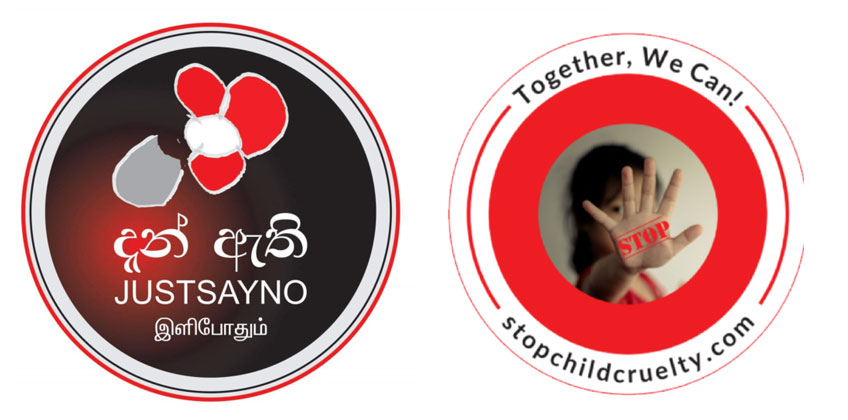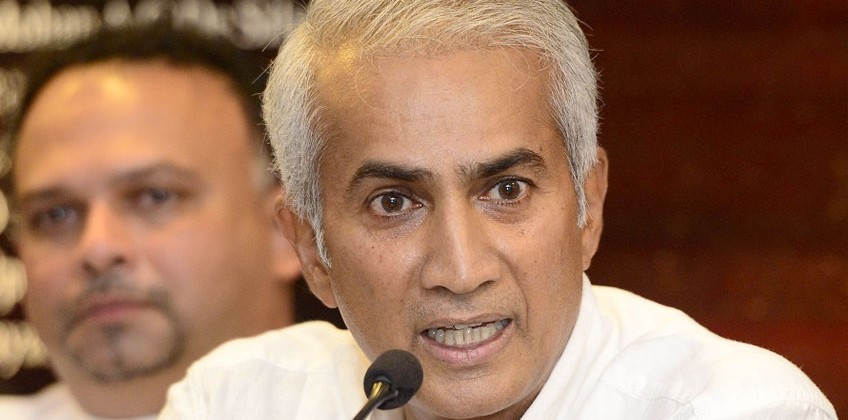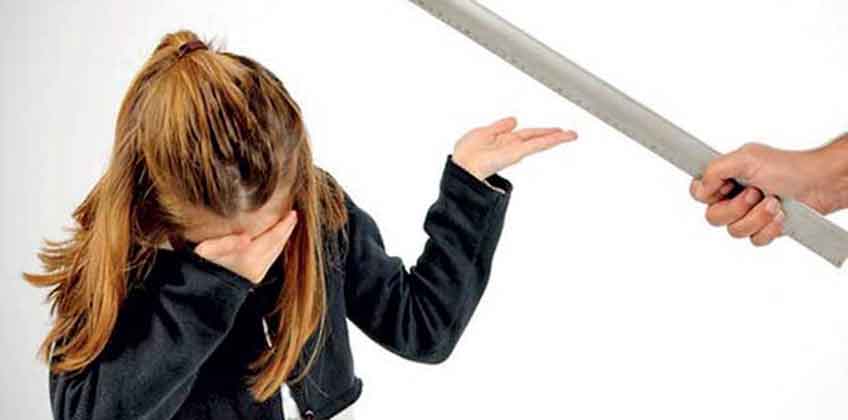
By Kalani Kumarasinghe
Despite repeated calls for a moratorium on the archaic practice, we often
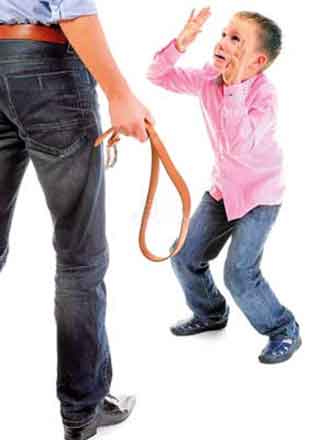
hear reports of children being subjected to grievous physical injury by adults, especially in schools. Corporal or physical punishment as defined by the Committee on the Rights of the Child is “any punishment in which physical force is used and intended to cause some degree of pain or discomfort, however light.”
Earlier this year the organisation Stop Child Cruelty was launched to end corporal punishment of children in schools and home. Dr. Tush Wickramanayaka spearheading the campaigns says it all started on a personal note when her own child was subjected to corporal punishment at an international school. “When I tried to find justice, I found that the system was so crooked and that children unfortunately were not protected by the law as they should be,” she said.
Realising that she must make it a public concern to prevent such negative incidents, Dr. Wickramanayaka embarked on a mission to help many others who had experienced similar circumstances. Her ultimate vision was to enforce a complete ban on corporal punishment in the island.
The March for Real Change on September 30 will end at 4 pm at the Independence square
“The laws aren’t quite geared to implement a ban. If a child faces quite serious corporal punishment and has to proceed to courts, more often than not the child will not receive justice. The daunting fact is that the perpetrator is at large and is likely to receive a suspended sentence on the grounds of good behaviour. There is no mechanism to monitor such persons. Who is overseeing his or her behaviour? How can we ensure that there would be no repetition of a similar incident in a different school by the same person?” she questions. She believes that some schools may not be forthright to inform authorities of any violation of the terms of the sentence.
“This issue is not about the teachers. The system is so warped that we are not attempting to raise awareness to a level where a change in attitudes and approaches of meting out punishments, is possible. We wish to resolve these issues at a grassroots level so that we don’t have to go to this extent,”
Dr. Wickramanayaka explains.
The laws aren’t quite geared to implement a ban. If a child faces quite serious corporal punishment and has to proceed to courts, more often than not the child will not receive justice
The campaign seeks engagement with all who are involved. “We want parents, teachers, administration and children to be a part of this process. We wish to create a platform where alternative disciplinary measures can be discussed,” Dr. Wickramanayaka opines. She is an ardent believer that discipline has rewards while punishment is a gateway to a plethora of issues. “The entire school environment is unhealthy these days.” Dr. Wickramanayaka believes that the establishment of a transparent system through law, society and regulators will create an environment where anyone will easily be able to recognise negative behaviour.
Schools are increasingly defensive about incidents of corporal punishment and therefore must be empowered to not only recognise corporal punishment but also to improve the lives of children through education, according to the experienced medical practitioner. “There needs to be an entire strategy in training teachers to become child protection officers, who will take responsibility and action in case of an incident. They are expected to work closely with the children, principals and parents,” she elaborates. “We must not forget that teachers too are often a victim in such cases and not just the child,” she adds.

At a 2006 meeting of the South Asia Forum, Sri Lanka expressed its commitment to prohibit all corporal punishment of children including at home. This commitment was emphasised following the 2005 regional consultation of the UN Study on violence against children. Despite the reiteration of this commitment during the universal periodic review of Sri Lanka last year, a complete prohibition is still to be achieved.
“Over 25 researches with objective evidence show that punishment affects the psychology of children, their cognitive behaviour and social withdrawal. It also severely affects them during their early adulthood. A classic example for this would be ragging in universities,” Dr. Wickramanayaka points out.
Schools are increasingly defensive about incidents of corporal punishment and therefore must be empowered to not only recognise corporal punishment but also to improve the lives of children through education
She also goes onto dispel the notion that the rejection of corporal punishment is a western idea. “Many people seem to think that we are absolutely fine and view punishment dismissively. But in reality we are pretending to be fine. In the past there have been records that King Vijayabahu implemented a ban on corporal punishment prohibiting physical harm on children. Corporal punishment was introduced under colonisation,” she claims.
The campaign to end child cruelty in Sri Lanka outlines several events over the next few days. A conference outlining the group’s agenda will be held on September 25, at 3 pm at Sri Lanka Foundation. The March for Real Change on September 30 will end at 4 pm at the Independence square where the petition will be handed over to President Maithripala Sirisena.
Asked why this campaign is unique Dr. Wickremenayake says 17 experts, who have dedicated their lifetime for the welfare of children have come together for the first time in Sri Lanka. “Experts such as Prof. Harendra De Silva and former secretary of education Dr. Tara de Mel have joined hands in a final attempt. Wwe have received international recognition via the global initiative to end corporal punishment of all children. They have acknowledged our agenda of changing not just attitudes and culture but also discrepancies in legislation,” said Dr. Wickremenayake.
“At the United Nations Convention of the Rights of the Child in 1992, Sri Lanka promised to end all forms of corporal punishment in practice. Sri Lanka is one of only 20 countries lagging behind the rest of the world in eliminating corporal punishment,” she said. “Even though there is in place a three-tier protection system against corporal punishment of children in schools in Sri Lanka, it has not the practice punishment in the country. The law has to be explicit that there cannot be any doubt about the law,” Dr. Wickramanayaka states.

Over 25 researches with objective evidence show that punishment affects the psychology of children, their cognitive behaviour and social withdrawal. It also severely affects them during their early adulthood. A classic example for this would be ragging in universities Dr. Wickramanayaka


